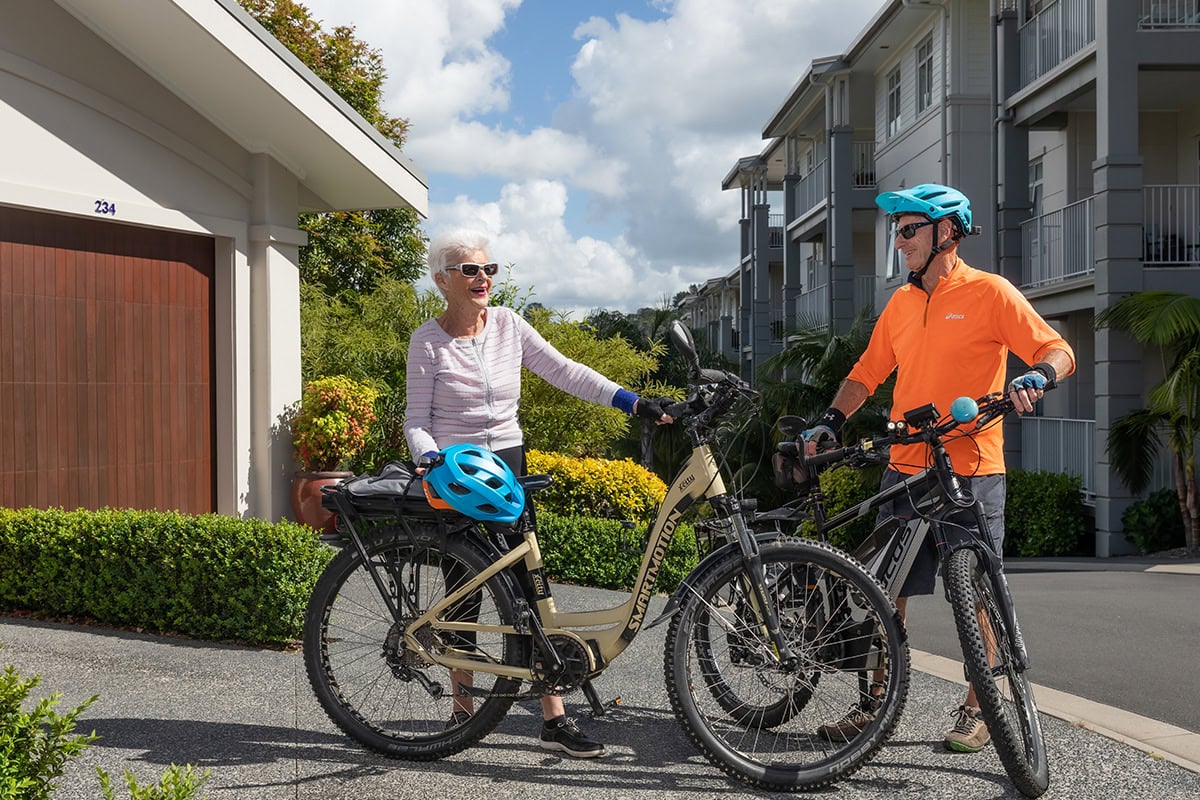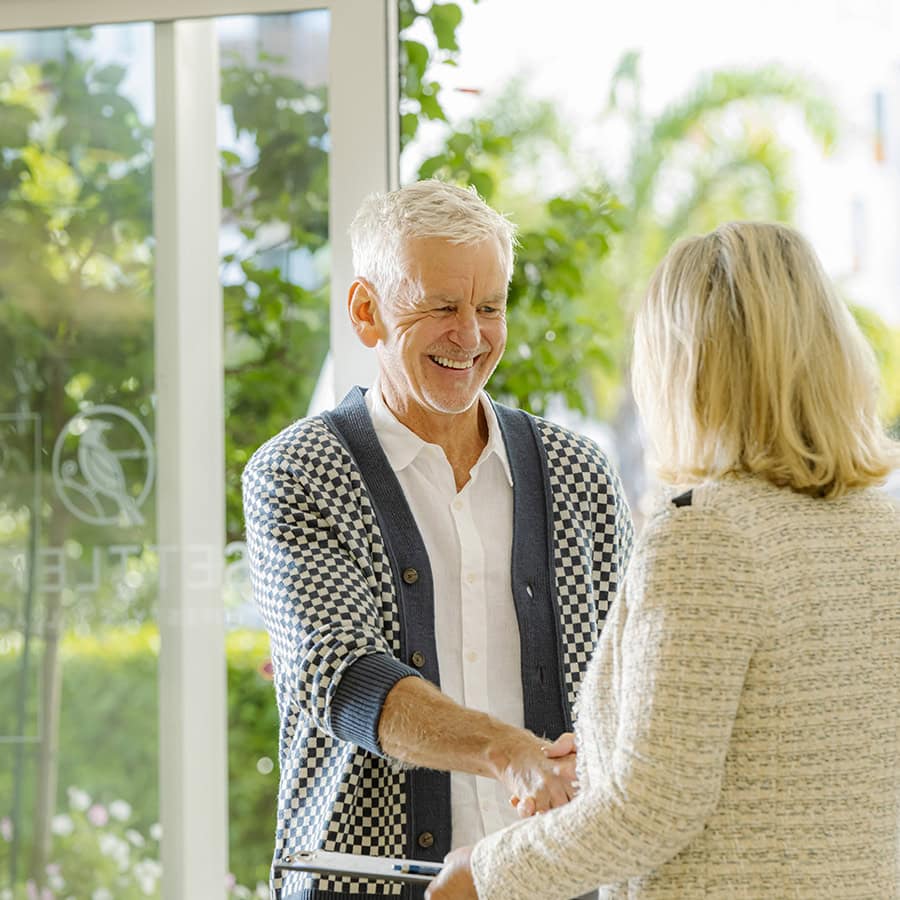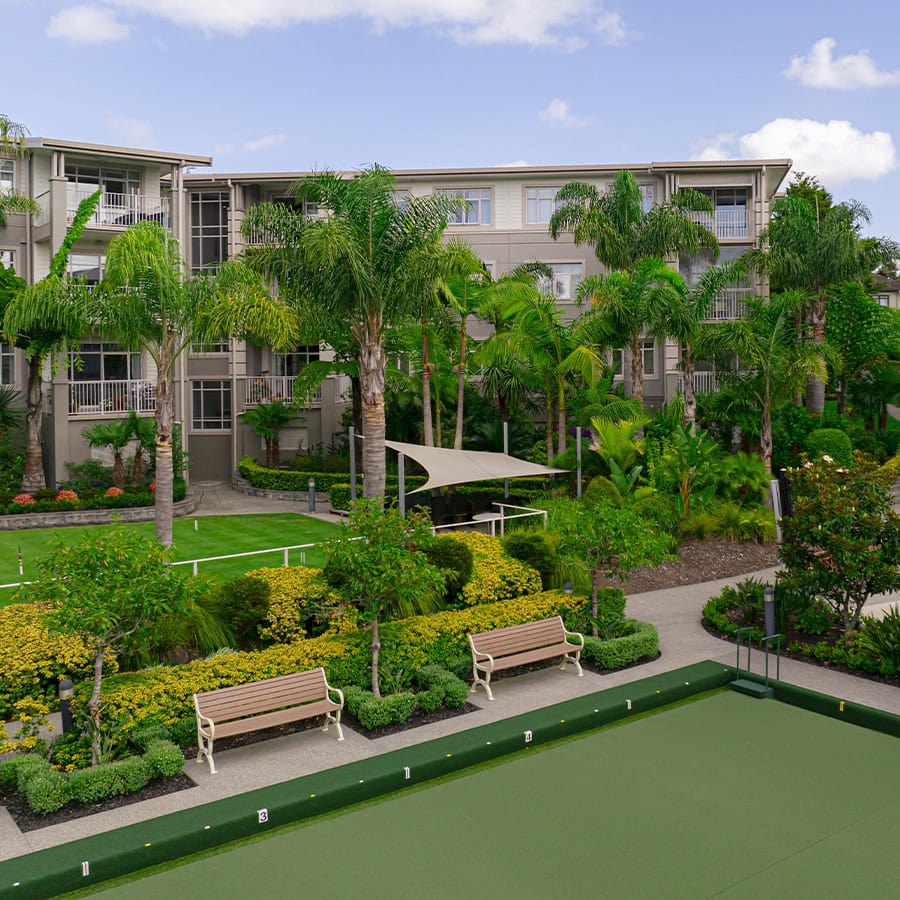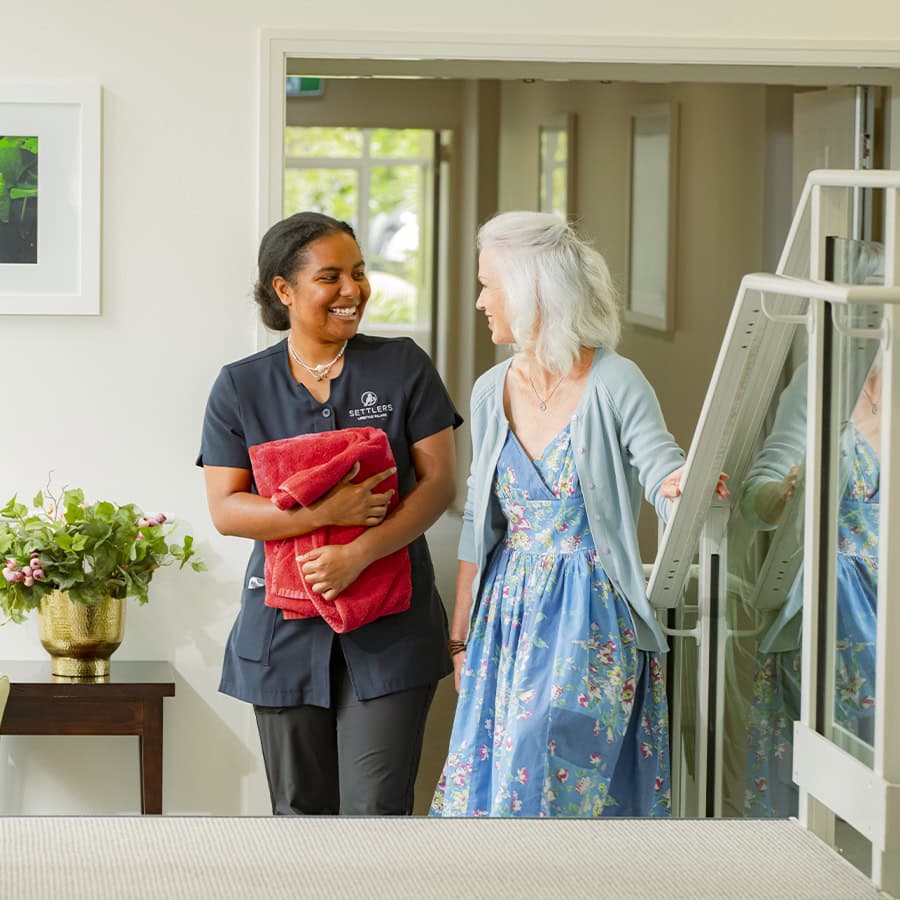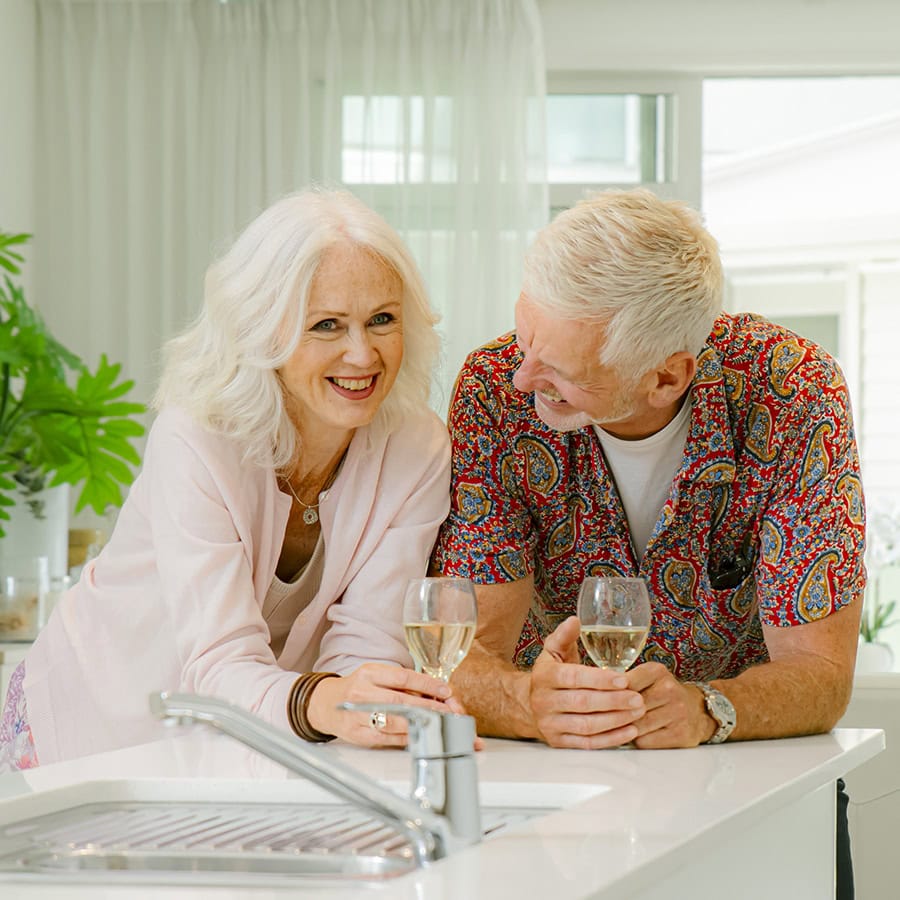Community plays a big role in successful ageing
A well-referenced and highly regarded study on successful ageing by Rowe & Kahn, 1997 [1] finds a clear correlation between better health and community engagement. They define successful ageing as having high levels of physical and cognitive function and being engaged.
“Living well” and “being well” go hand in hand. But what does it mean to live well?
The social and physical environment we live in has a big impact on how we age. There’s no doubt that where you live shapes what you can do there, and in that way, influences your health.
Your choice of community is actually more important than you think.
Social participation is seen to be a significant factor in maintaining overall health and well-being. Community engagement and social participation are associated with better health in old age and lower mortality rates. How significant is this association? Just as significant as well-established risk factors like smoking, alcohol consumption, exercising and eating well (Holt-Lunstad, Smith & Layton, 2010 [2]).
“Social relationships, or the relative lack thereof, constitute a major risk factor for health—rivalling the effect of well-established health risk factors such as cigarette smoking, blood pressure, blood lipids, obesity and physical activity”
—House, Landis, and Umberson; Science 1988 [3]
A review of five large prospective studies three decades ago suggested that social relationships predict mortality [3]. Immediately after this provocative review was published, studies of mortality that measured social relationships skyrocketed.
148 independent studies found that social relationships significantly predict mortality. How big was the increase in survival odds? Incredibly, the research showed that social relationships increase survival odds by 50%.
srefPubMed], [WorldCat]
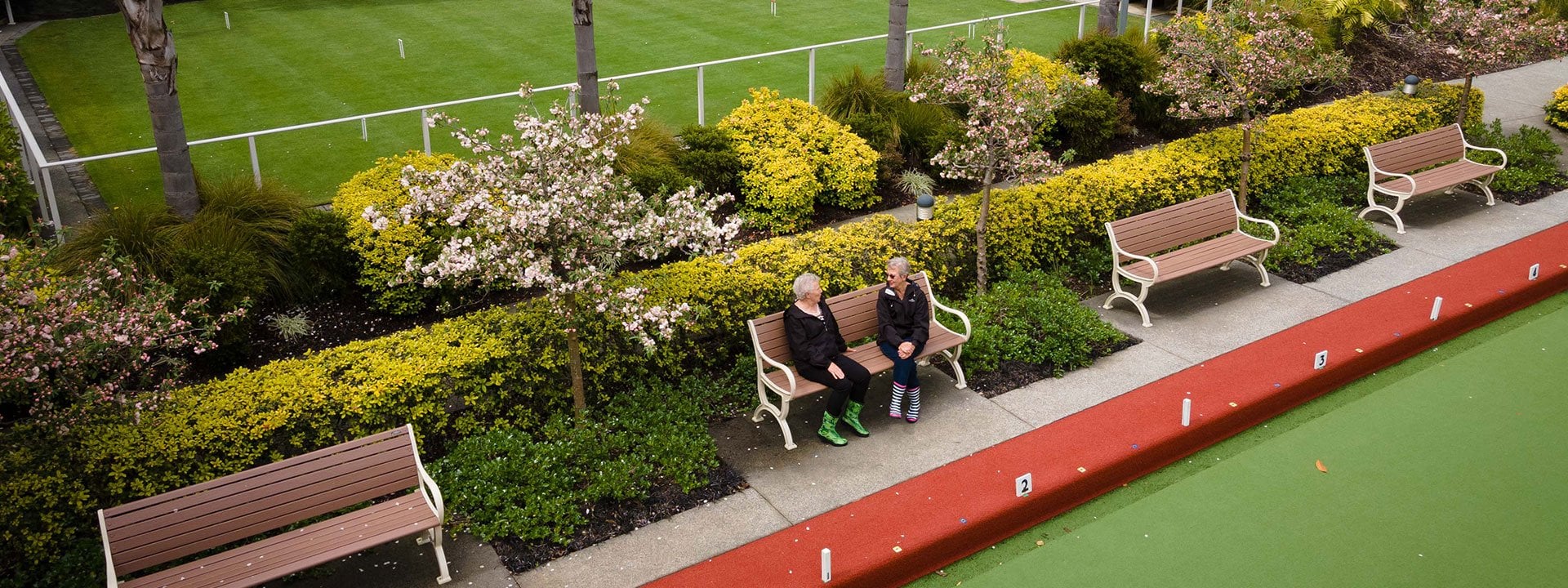
But how can a retirement community support social relationships?
In our community, we focus on three key ways to support social relationships. We refer to these as themes.
Vitality
Among the five key strengths most strongly associated with happiness and well-being is vitality. Curiosity, optimism, gratitude, and the ability to love and be loved are the other four strengths.
Vitality comes from the Latin word vita, which means life. Physically, it means feeling strong, capable, and healthy. From a psychological perspective, it gives meaning and purpose to life. We offer a variety of activities to keep our residents active, mentally sharp, and socially engaged. Our community has plenty of activities to help infuse energy into your life; whether it’s playing table tennis, participating in tai chi, or attending one of our many social events. All of our activities are designed to provide our residents with joy and excitement. Our variety of activities stimulates curiosity and fosters connections.
Learn more about how we foster vitality >>
Support
Our supportive community is made up of caring people who are committed to making your retirement living experience enjoyable and safe. We offer a wide range of wrap-around support services, from 24/7 on-site medical support to housekeeping services, so you can focus on enjoying your retirement.
Learn more about how we support our residents >>
Friendship
Study after study has found that health and psychological well-being improve for seniors when they:
1. Like and care about other people
2. Have fun together
3. Feel comfortable confiding in each other
4. Remind each other to stay healthy (Blieszner & Adams, 1992). To put it another way – when they have good friends!
As social creatures, we are wired to connect from birth. Relationships with family members, friends, and colleagues are an integral part of our lives. Social ties provide us with emotional support, a sense of belonging, and companionship. In late adulthood, friendships can be even more crucial. Social circles can shrink as we age. We retire from work, our kids move away, and our loved ones pass away. Feelings of loneliness and isolation may result from this. We don’t want that for our residents. It is well known that social isolation places older adults at risk for both physical and psychological health problems.
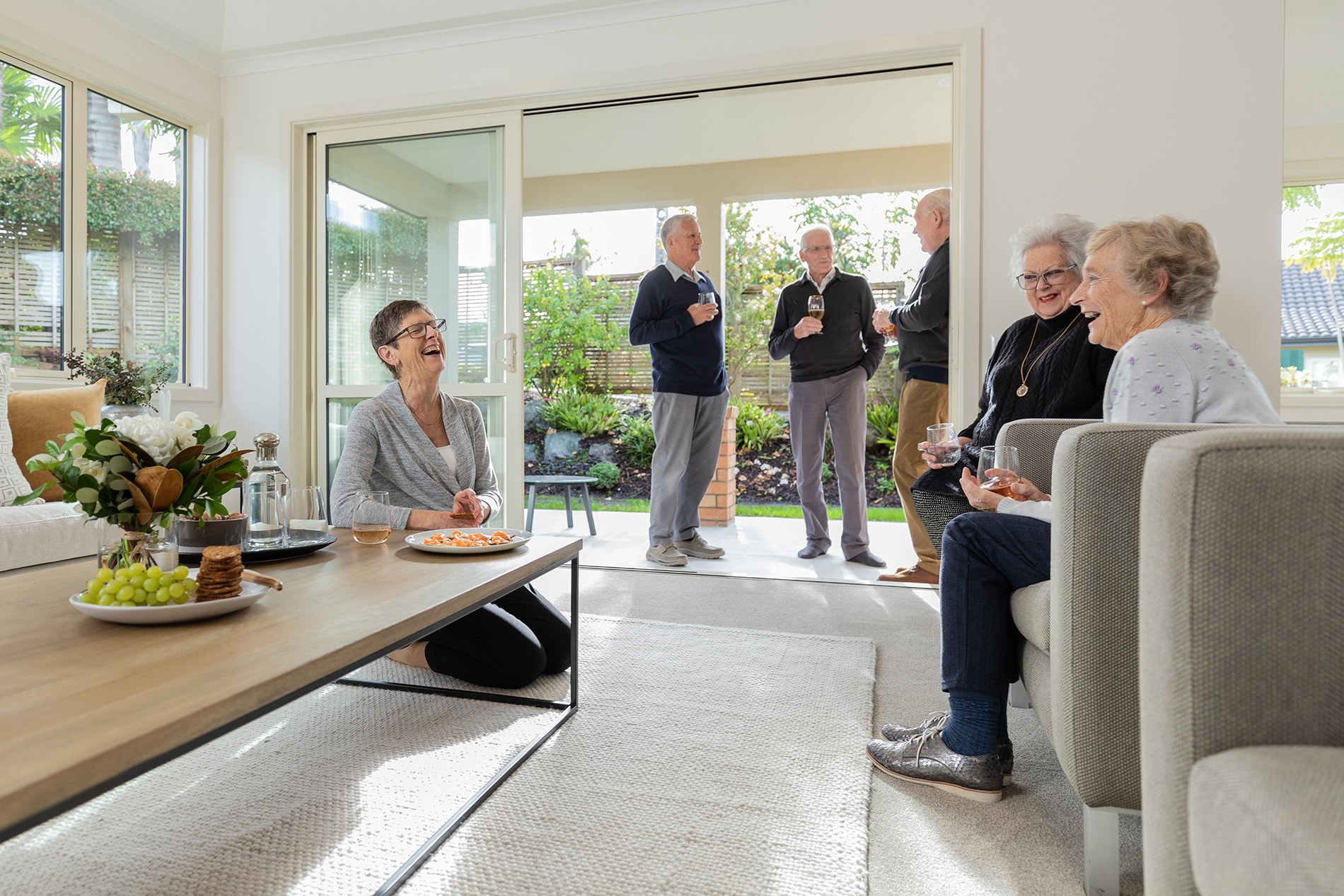
Our village is designed to support social interaction
It is for this reason that Settlers Lifestyle Village has designed its facility in a way that encourages social interaction. We offer a variety of amenities and common spaces that help residents connect.
According to Commonwealth champion weightlifter Precious McKenzie, our village has a strong sense of social connectivity. Precious McKenzie moved to Settlers more than a decade ago to be closer to the family on the North Shore. Not surprisingly he loves being in the gym, naming the well-attended twice-weekly aerobics classes as a highlight. His favourite village activity, however, is “lots of socialising and happy hours! The staff at Settlers are really wonderful . . . They put their heart and soul into this complex, and make sure everyone is happy and joining in. There is even a get-together for men, they bring us together for a meeting once a week. No one is isolated . . . You live longer if you aren’t [isolated]”.
It is a great honour for us to support our residents during their senior years. We commit a lot of time and energy to make our community the best it can be for our residents.
Learn more about how we foster friendship in our community>>
But don’t just take our word for it. Experience it for yourself. You will see, hear and feel the difference. We invite you to visit our beautiful resort-like facilities, to see the activities we provide, and to hear what it is like to live here from our residents.
References
- Rowe J, Khan R, Successful Ageing, The Gerontologist, Volume 37, Issue 4, August 1997, Pages 433–440, https://doi.org/10.1093/geront/37.4.433
- Holt-Lunstad j, Smith T B, Layton JB, Social Relationships and Mortality Risk: A Meta-analytic Review. 2010 Jul; 7(7): e1000316.PLoS Med.
- House JS, Landis KR, Umberson D. Social relationships and health. Science. 1988;241:540–545. [PubMed] [Google Scholar]
- Blieszner, R., & Ogletree, A M., & Adams, R G (2019). Friendship in Later Life: A Research Agenda, Innov Aging. 2019 Jan; 3(1): igz005.
